Last year in February, Chief Executive Officer (CEO) Sharifah Adila binti Surya Malai Haji Abdullah of the Society for the Management of Autism Related issues in Training, Education and Resources (SMARTER) Brunei, found herself facing an incredibly tough decision, perhaps one of the most challenging in her career.
“This video is a public plea,” she said in a video shared across their social media platforms, her voice heavy with the gravity of the situation.
For the last two decades since the non-governmental organisation’s (NGO) establishment, it has been no secret that the organisation has faced a long battle with achieving financial stability, she added.
A battle that has regrettably led them to increase their centre fees by about 50 to 60 per cent.
Previously, the fees for child and adult members were set at BND150 and BND250. However, these rates barely covered the organisation’s operational costs, which amount to about BND50,000 to BND60,000 a month.
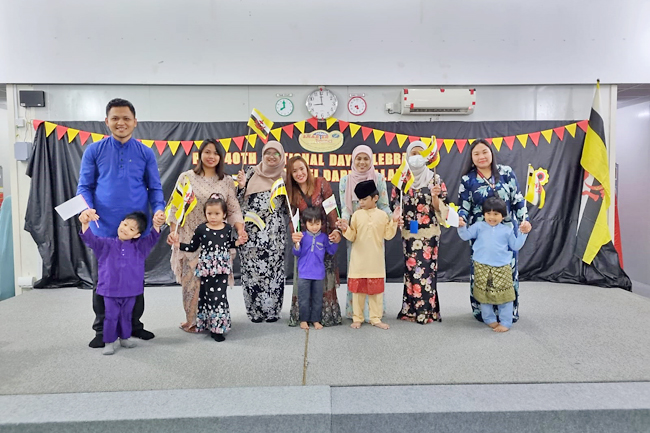
“We understand that this will mean many families and parents can no longer afford our services,” Sharifah Adila, affectionately known in the community as Malai Didi, admitted through tear-filled eyes.
“I am deeply sorry for what is to happen… I am sorry, on behalf of our father, on behalf of our family, for not being able to keep SMARTER Brunei accessible to everyone.”
The video, which garnered over 28,000 views and more than 700 shares on Instagram, also detailed the NGO’s decision to scale back its services, resulting in the closure of its oldest branch in Kuala Belait. Now, more than a year later since the video was posted, Malai Didi shared how the last five years had brought a cascade of challenges, which sadly began with the passing of her father and SMARTER Brunei founder, Malai Haji Abdullah bin Malai Haji Othman, in 2019.
A SERIES OF UNFORTUNATE EVENTS
The year was poised to be exceptional, especially following the prior year when the late Malai Haji Abdullah was honoured with the Padma Shri award by the Indian government.
The Padma Shri is India’s fourth-highest civilian award, conferred in recognition of distinguished contributions in various spheres including the arts, education, industry, literature, science, acting, medicine, social service, and public affairs.
“2019 was one of our busiest years. We opened our bistro and café, and we also launched our hydroponics programme. And then 2020 happened,” she said in an interview with The Bulletin. With the pandemic reaching Brunei’s shores, the organisation faced one setback after another.
Restrictions on activities meant they couldn’t conduct their fundraising and the shift to remote learning alongside the economic fallout from the pandemic meant members weren’t able to pay their fees—a decision SMARTER understood, given the circumstances. The country’s focus at the time was solely on addressing COVID-19.
“We did our best, fundraising through activities like providing food packs for the frontliners, but it only got us so far.”
During Brunei’s zero-COVID phase, SMARTER Brunei was able to reopen its centres and carry out fundraising activities, albeit on a smaller scale and for the first few months of 2021, the NGO appeared to stabilise.
However, the second wave hit them hard, and by the following year, SMARTER Brunei struggled with losing staff and members, and struggling to maintain visibility in the public sphere. This eventually led to the video posted in 2023, announcing the possibility of the NGO’s closure.
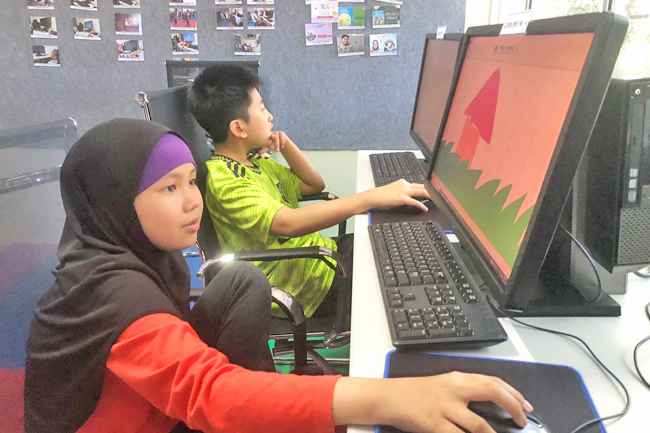
A WELCOME RESPITE AND EVOLUTION
Following the heartfelt appeal through their video post, SMARTER Brunei witnessed an overwhelming wave of support. In response to the raised centre fees, SMARTER Brunei introduced sponsorship options for the public, allowing generous donors to cover these fees either partially or fully.
The engagement didn’t stop there as companies from the private sector stepped forward, fostering numerous collaborations, programmes and fundraising efforts.
Despite the organisation’s struggle with losing several members and staff in the past challenging years, these new partnerships have sparked a hopeful transformation poised to benefit SMARTER Brunei for the long haul.
The composition of the organisation’s specialist staff, once predominantly foreign professionals skilled in language, physiotherapy and medical care for individuals with autism, is now evolving.
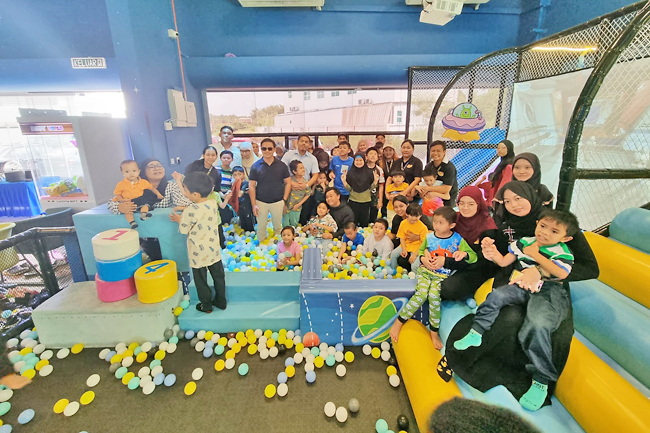
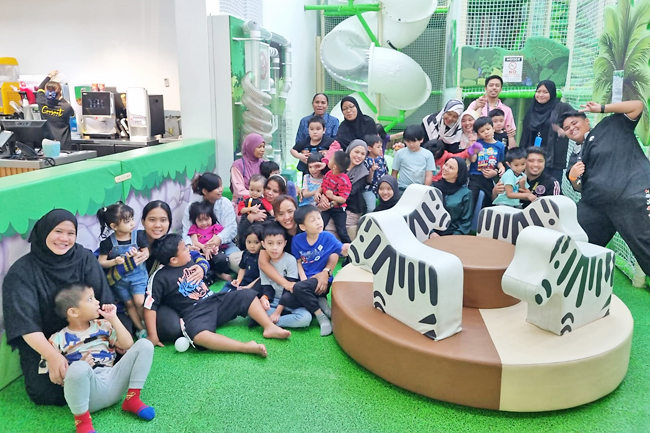
From a team of 40 international experts, the numbers have dwindled to fewer than 20, making way for around 40 local talents.
These local staff members, primarily graduates from the Religious Teachers University College of Seri Begawan (KUPU SB) and Universiti Islam Sultan Sharif Ali (UNISSA) who specialise in the fields of special education or early childhood development, are stepping up, marking a significant shift towards a more locally-driven expertise base.
Though she recognised the high turnover rate among their local staff, a common issue for non-profit organisations where financial stability is uncertain, SMARTER Brunei is proud of its efforts in developing a local workforce.
With the increasing enrolment at their two remaining centres, now exceeding 120 students, this emphasis on local talent development is more crucial than ever.
“Even if they leave us to work for the government or in public schools, we’re content knowing they’re applying the skills they acquired here. Who knows, perhaps they’ll even support their own students with autism,” she reflected.
THE WAY FORWARD
“2024 has been better for us so far, I wouldn’t say we are stable, but we are getting better grounding – we can breathe,” added Malai Didi who is also currently the President of the Council for the Welfare of Persons with Different Abilities (MKOKU).
Speaking on the state of welfare for persons with different abilities the Sultanate, Malai Didi noted how Brunei may be somewhat behind compared to our neighbours however the country has made significant strides particularly with welfare reforms concerning persons with disabilities.
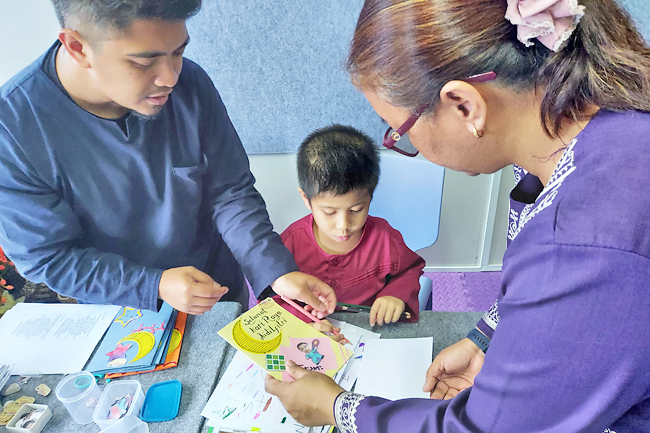
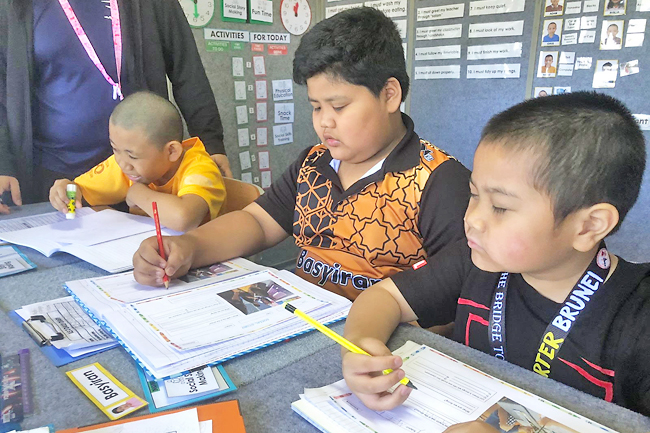
“Inclusion of persons with different abilities (OKU) at the ministerial level has become a priority in the government, and we are listened to more than ever.
“The progress Brunei has made over the past decade is remarkable. While it may seem modest, this progress is crucial. It’s a start, and once the ball is rolling, we cannot let it stop. My father’s passing, the challenges of COVID, and the threat of closure have all taught me that we must never cease our work or stop pushing forward.”
World Autism Awareness Day (WAAD) has been celebrated every April 2 since 2008 to push for awareness on autism and everything that autism brings. – Wardi Wasil


